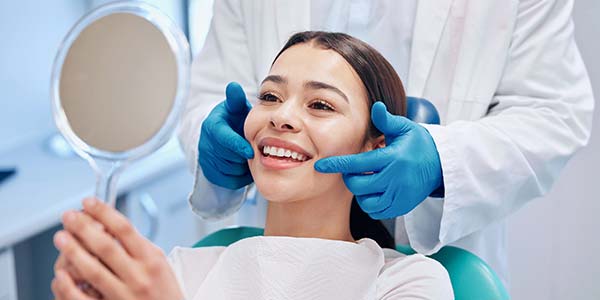
If you’ve recently received a dental crown or are preparing for one, proper aftercare is essential to ensure its longevity and protect your overall oral health. Whether you’re in Houston, Dallas, Austin, or Stafford, Texas patients who follow good dental crown care routines can enjoy their new smile for many years to come.
In this guide, we’ll cover the best dental crown aftercare tips—from immediate post-procedure steps to long-term maintenance—designed specifically for patients across the Lone Star State.
Why Dental Crown Aftercare Matters
Dental crowns are strong and durable, but they still require care. Whether you’ve received a porcelain, zirconia, or same-day dental crown, following your dentist’s advice is critical. Proper aftercare helps:
- Prevent gum irritation or infection
- Extend the life of the crown (10–15 years or longer)
- Avoid costly repairs or replacements
- Maintain your overall dental and gum health
Immediate Aftercare: First 48 Hours
Right after getting your dental crown, your mouth needs time to adjust. Here’s what to focus on during the first two days:
1. Avoid Sticky and Hard Foods
Stay away from gum, hard candies, or tough meats that could dislodge or damage your new crown, especially if it’s a temporary crown.
2. Chew on the Opposite Side
Chew food on the opposite side of your mouth for at least 24 hours to give your crown a chance to settle.
3. Expect Some Sensitivity
Mild discomfort or temperature sensitivity is normal, especially to hot or cold foods. This typically fades within a few days.
4. Manage Discomfort
Over-the-counter pain relievers like ibuprofen can help reduce inflammation and pain. Always follow your dentist’s recommendations.
Long-Term Aftercare Tips for Dental Crowns in Texas
Once your crown has settled, you’ll want to adopt consistent care habits to protect your investment.
5. Brush and Floss Daily
Even though the crown itself cannot decay, the tooth underneath still can. Use a soft-bristled toothbrush and fluoride toothpaste to clean twice daily. Floss carefully around the crown to avoid gum disease or plaque buildup.
Tip for Texans:
If you live in areas like Houston or Austin where water fluoridation may vary, your dentist might recommend additional fluoride treatments.
6. Avoid Teeth Grinding (Bruxism)
Grinding your teeth can crack or loosen crowns—especially porcelain or ceramic types. If you grind your teeth at night, ask your dentist about getting a custom nightguard.
7. Limit Staining Foods and Drinks
While zirconia and porcelain crowns are stain-resistant, your surrounding natural teeth may discolor over time. To maintain a bright, even smile:
- Avoid coffee, tea, red wine, and tobacco
- Rinse your mouth after consuming staining foods
8. Watch for Crown Loosening or Discomfort
If your crown ever feels loose, wobbly, or painful when biting down, contact your Texas dental provider immediately. Ignoring it can lead to decay or infection under the crown.
Special Aftercare Tips for Different Types of Crowns
• Same-Day Dental Crowns in Texas
These crowns are crafted and placed in one visit using CEREC or similar technology. While convenient, they still require the same level of care as traditional crowns.
• Porcelain Crowns
Porcelain is highly aesthetic but can be more brittle than metal-based crowns. Be extra cautious with biting hard foods like nuts or ice.
• Zirconia Crowns
Zirconia offers superior strength but can wear down opposing teeth if not adjusted properly. If your bite feels off, schedule a check-up.
Regular Dental Checkups Are Key
Routine dental visits (every 6 months) are vital for monitoring the condition of your dental crown and your overall oral health. During these visits, your dentist will:
- Check the crown’s fit and stability
- Clean hard-to-reach areas
- Detect early signs of issues like decay or gum disease
If you’re in Stafford, Houston, or Dallas, choose a trusted Texas dental clinic that offers crown-specific care and digital X-rays for precise diagnostics.
What to Do If a Crown Falls Out
Accidents happen. If your crown falls out:
- Save the Crown if possible
- Rinse Your Mouth gently with warm water
- Call Your Dentist Immediately for an emergency appointment
- Avoid Eating on That Side until it’s fixed
Do not try to reattach the crown yourself with glue it could cause more harm than good.
Final Thoughts
With proper care and regular dental checkups, your dental crown can last for over a decade while maintaining your smile and confidence. Whether you’ve opted for cosmetic dental crowns, same-day crowns, or traditional restorative ones, taking care of them is crucial, especially in Texas, where high temperatures and diverse diets can affect your oral health.
Follow these dental crown aftercare tips, and partner with a skilled Texas dental crown specialist to keep your crown, and your smile looking and feeling great for years to come.
